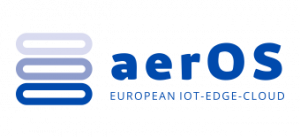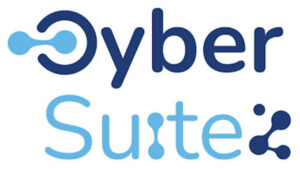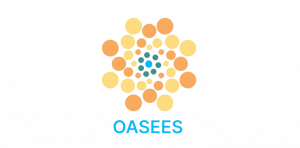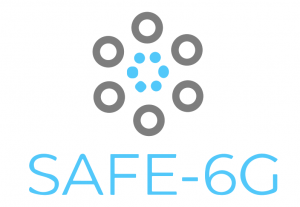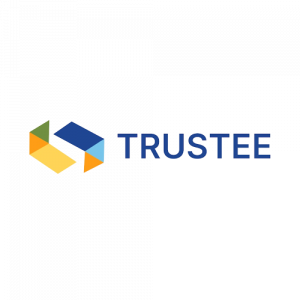Research Projects
ACTIVE PROJECTS
aerOS overarching goal is to design and build a virtualized, platform-agnostic meta-operating system for the IoT edge-cloud continuum. As a solution, to be executed on any Infrastructure Element within the IoT edge-cloud continuum hence, independent from underlying hardware and operating system(s) aerOS will: (i) deliver common virtualized services to enable orchestration, virtual communication (network-related programmable functions), and efficient support for frugal, explainable AI and the creation of distributed data-driven applications; (ii) expose an API to be available anywhere and anytime (location-time independent), flexible, resilient and platform-agnostic; and (iii) include a set of infrastructural services and features addressing cybersecurity, trustworthiness and manageability.
COBALT proposes the introduction of Common Certification Model (CCM) for European industries, leveraging existing standards and composing a unified cybersecurity namespace for ICT processes. The project will uphold the paradigm of Digital Twinning (DT) and extend it in a vertical agnostic approach across different industries, including Quantum computing and I4.0.
Towards addressing the digital transformation oriented needs of SMEs, the CyberSuite offers a holistic cybersecurity framework to simplify the design, dimensioning, configuration, deployment and management of diverse cybersecurity services, providing advanced levels of security, privacy and trustworthiness for SMEs, into a single platform, directly targeted to fill the existing gap in the market, through an “easy-to-onboard” and “easy-to-deploy” cybersecurity services marketplace. The CyberSuite platform is composed of a pallet of advanced and existing cybersecurity services, providing an enterprise-grade “Security-as-a-Service” solution, including personalized recommendation cybersecurity functions and processes per se, advanced network-based intrusion detection mechanisms together with novel attestation and verification methods as a means of assurance and trusted interoperability with tools for cyber range capabilities and advanced cybersecurity analytics services.
FAME is a joint effort of world-class experts in data management, data technologies, the data economy, and digital finance to develop, deploy and launch to the global market a unique, trustworthy, energy-efficient, and secure federated data marketplace for Embedded Finance (EmFi). The FAME marketplace will alleviate the proclaimed limitations of centralized cloud marketplaces towards demonstrating the full potential of the data economy. Furthermore, FAME will establish a Learning Center (LC) for tech and non-tech users, as this is a key prerequisite for unlocking the potential of the data economy. FAME will build a vibrant community of EmFi stakeholders around the FAME platform, which will serve as a catalyst for the sustainability of the project’s results.
A secure and decentralized programmability framework for edge devices. The OASEES project aims to create a new programmability framework that will allow edge devices to work together in a decentralized and secure way, using advanced technologies such as AI/ML accelerators (FPGAs, SNNs, Quantum) and a privacy-preserving Object ID federation process. This framework will be fully open-source and developed specifically for Europe.
Even if significant progress has been made towards the Twin Transition, the recent energy crisis revealed the EU energy system’s vulnerability and dependence on external energy sources and highlighted the need for intensifying the integration of RES in electricity, transport and building (heating) sectors. To achieve on this, the energy system shall transform from a centralised/fossil-fuel-based to an energy efficient, RES-based and interdependent system, operating with a high degree of flexibility offered by distributed assets. ODEON is conceived under the principle that this can only be realized through the creation of an inclusive ecosystem of stakeholders characterized a mesh of Data, Intelligence, Service and Market flows, jointly enabling the resilient operation of the energy system under increased RES integration and distributed flexibility. ODEON introduces a sound, reliable, scalable and openly accessible federated technological framework (i.e. ODEON Cloud-Edge Data and Intelligence Service Platform and corresponding Federated Energy Data Spaces. AI Containers, Smart Data/AIOps orchestrators) for the delivery of a wealth of services addressing the complete life-cycle of Data/AIOps and their smart spawn in federated environments and infrastructures across the continuum. It will integrate highly reliable and secure federated data management, processing, sharing and intelligence services, enabling the energy value chain actors and 3rd parties to engage in data/intelligence sharing, towards the delivery of innovative data-driven and intelligence-powered energy services in accordance to the objectives set by the DoEAP. ODEON results will be extensively validated in 5 large-scale demonstration sites in Greece, Spain, France, Denmark and Ireland involving all required value chain actors, diverse assets, heterogeneous grid and market contexts, and multi-variate climatic and socio-economic characteristics to support its successful replication and market uptake.
SAFE-6G is a European research project (HORIZON-JU-SNS-2023-STREAM-B-01-04), which pioneers a holistic research approach, situating a native trustworthiness framework atop the open and distributed USN/NSN-based 6G core, leveraging (X)AI/ML techniques to coordinate user-centric safety, security, privacy, resilience, and reliability functions, strategically optimizing the Level of Trust (LoT) as a pivotal Key Value Indicator (KVI) for 6G, while addressing specific trust requirements and data governance policies specified by each user/tenant/human-role throughout the entire 6G lifecycle, encompassing onboarding, deployment, operation, and decomposition.

Towards the forthcoming transition to a fully connected world (e.g., Internet of Senses, digital twins), support of connected intelligence requires service advertisement, discovery, negotiation and management that goes beyond the complexity and scalability that existing technologies and subscription-driven MNO processes can handle. In Beyond 5G (B5G) networks, cyber-physical assets and intelligent end points will be capable of translating current service requirements to comprehensive technical specifications dynamically (e.g., QoS/QoE management per service chunk) as well as request for full customization of their service terms in line with current availability of tenants/resources and their application requirements. Distributed ledger technologies (DLTs) hold the key for natively disintermediated, cost-efficient, and anonymous B5G communications, enabling transparency and trust to be established across the integrated DLT, radio access and core network continuum. The SOVEREIGN research programme aims to fuel artificial intelligence (AI) with DLT-backed data in order to innovate the B5G service chain and the B5G protocol stack towards the support of fully decentralized, instantaneous, and anonymous resource trading across the B5G network ecosystem (end terminals, infrastructure, OTT service providers, etc.). SOVEREIGN aims to empower intelligent end points in B5G networks, to gain full control of their identities, connectivity, sessions, service terms, and shared data upon accessing B5G spectrum, antennas, network slices and services. To this end, SOVEREIGN will conceptualize and develop a modular end-to-end service architecture integrating DLT-empowered service provisioning, fully decentralized AAA operations, forward-thinking protocols for self-sovereign identity management and anonymity/data privacy preservation as well as user-driven AI-enabled mobility management and traffic steering over joint DLT/B5G system infrastructures.
The horizon-trustee project proposes a secure by design Federated Platform that complies with the EU guidelines for architecture and data management. The platform will be capable of ensuring interoperability, enabling cross-border scenarios and scaling a variety of AI-based applications through the use of open APIs. Trustee will utilize self-sovereign technologies and SOTA homomorphic encryption to create a socially and environmental-aware framework for cross discipline federation of data.
COMPLETED PROJECTS
As 5G is gearing up for market deployment to incorporate realistic business cases, Europe is taking steps to lead global developments. The materialisation of the fifth generation of telecommunications systems, which will provide ultra-high bandwidth, massive machine to machine communications and low latency connectivity, hinges on the development of network applications (NetApps). The EU-funded EVOLVED-5G project will upgrade the 5G experimentation potential in Europe and materialise the openness of 5G to vertical industries by creating a NetApp development and verification environment. It will also enable the digital market around NetApp designing. Quantifying the performance and flexibility that 5G provides to verticals is also planned, as is maximisation of the business potential from the integration of 5G in manufacturing.
PHYSICS empowers European CSPs(Cloud Service Providers) to exploit the most modern, scalable&cost-effective cloud model(FaaS), operated across multiple service &hardware types, provider locations, edge&multi-cloud resources. To this end, it applies a unified continuum approach, including functional & operational management across sites & service stacks, performance through the relativity of space (location of execution) & time(of execution), enhanced by the semantics of application components&services.
